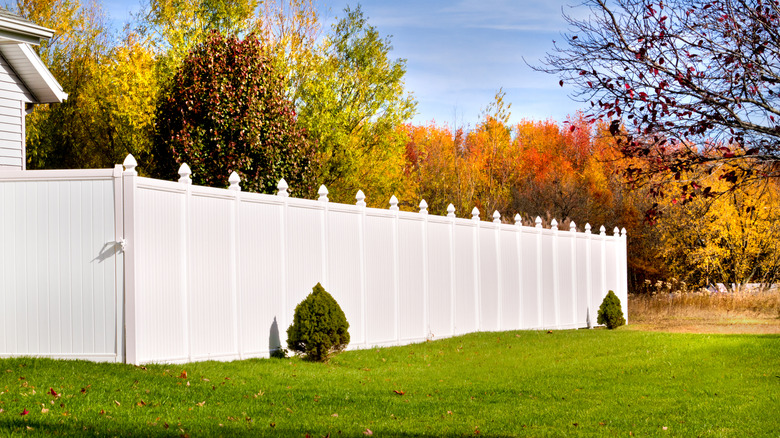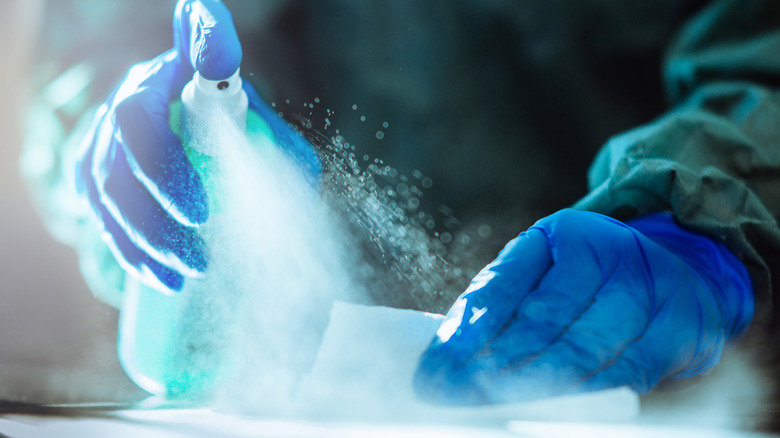The Vinegar Hack That Will Have Your Dirty Vinyl Fence Looking Like New
Choosing vinyl fencing over wood, chain link, or steel is all about weighing the pros and cons. Aesthetics, durability, and price all play a role in the decision, as does upkeep. While you don't have to worry about rusted metal or rot, vinyl fences are not immune to scuffs and stains. Marks and discoloration build up over time and start to look old and dingy, which is not the first impression anyone wants for their home. Hiring a professional to power wash the stains away is a good idea every once in a while, but that can become expensive. A neat trick for regular maintenance that won't break the bank or harm the surface of the fence is to use white vinegar and a rag or soft brush.
Vinegar is a versatile cleaning tool for inside the home, but cutting boards, countertops, and coffee makers aren't typically being splashed with mud and withstanding the elements. A valid assumption may be that stronger chemicals are needed to get tougher jobs done, but here's how an organic compound in vinegar makes it effective on grime but also non-corrosive when properly diluted.
How to clean vinyl fencing with vinegar (and why it works)
Vinyl fencing is made of PVC (polyvinyl chloride) mixed with titanium dioxide additives for protection against UV rays that would otherwise weaken the fence over time and cause it to yellow. Vinegar is made of water and acetic acid (CH3COOH), which is commonly used in the production process for vitamins and antibiotics, and to preserve food. There is typically about 5% acetic acid in distilled vinegar, and 6% in cleaning vinegar, though both can be used for cleaning. The acid is powerful enough to dissolve dirt and grime, but has a "low ecological hazard potential," per Chemical Safety Facts, so it won't harm the environment. Even though 5% seems like a small amount, experts recommend different vinegar-water solutions instead of using it straight from the bottle. Cleaning vinegar is 20% stronger, so it requires more dilution.
To clean mold and dirt from vinyl fencing, spray a mixture that is eight parts water and one part white vinegar, let it sit for 10 minutes, and then wipe it away with a rag or soft bristle brush. You don't want to use a wire brush and you don't want to leave the vinegar on indefinitely because that could reduce the UV protection and weaken the fencing. White vinegar has a very long shelf life but it does become less effective for cleaning over time, so be sure to store what you don't use in a cool, dark place and not in direct sunlight.

